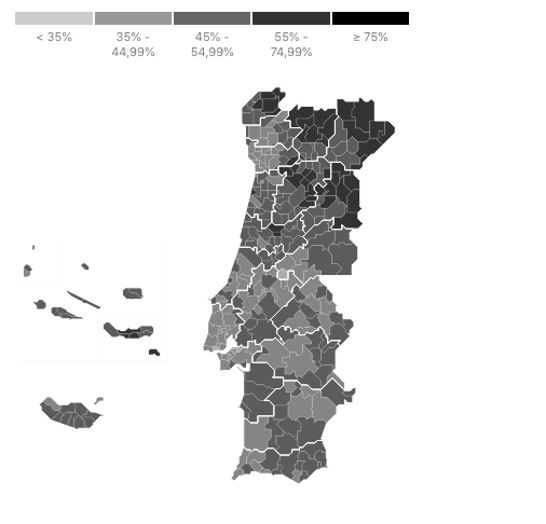2021 Portuguese Presidential Elections
- Joana Jacinto
- Feb 2, 2021
- 3 min read
Updated: Mar 9, 2021
The Portuguese presidential election took place on the 24th of January 2021 and decided the next president for the following five years. President-elect Marcelo Rebelo de Sousa, will be continuing to serve as head of state, having won a second consecutive term, becoming the first candidate to win in all municipalities (concelhos) in the country. The PPD/PSD (Partido Social Democrata) candidate won in the first round with 60.7% of valid votes. (“Eleições Presidenciais Portuguesas De 2021.”, 2021)
In his speech, Marcelo addressed the COVID crisis victims, stating “On November 2, the day of the evocation of the victims of the pandemic in the Palace of Belém, there were 2590 dead. It is now 10469. For them, as well as for the non-Covid dead, in these almost 11 months of ordeal, mine goes, our first emotional thought.” (RTP, 2021)
There was little shadow of a doubt among the Portuguese that the president would be reelected, however doubt did reside in which candidates would occupy the following places in the podium. Behind Marcelo, with 12.97% of the votes, Ana Gomes, candidate from PS (Partido Socialista). Followed by a close 11.9% from CHEGA candidate, André Ventura.
Furthermore, this year, the election process was stained by the current health pandemic, which modelled all of the candidates’ campaigns as well as the election itself. This also accentuated a long-term election process in Portugal: abstention. Before this election, the highest number of abstentions had been 53.48% during the 2011 election, when President Cavaco Silva was reelected. This year, abstention reached 60.51%. As it can be seen by the image below, as usual, abstention was a dominant choice in various municipalities of the country. (Almeida, 2021).

Figure 1 - Abstention statistics in Portugal: 2021 presidential election (Almeida, 2021)
Voting through correspondence was one of several initiatives for early voting, sponsored and supported not only by the Portuguese Government, but by the candidates themselves. This meant that by 17th of January 246 880 voters were registered.
However, this measure was not appreciated by all, or available, according to an opinion article in Observador by Portuguese emigrant, Pedro Caetano. Resident in the UK, he brings to attention the 95% (forced) abstention to Luso emigrants. He states, “Basically, 1.5 million emigrants were removed from voting in Portugal, a fundamental right in a democracy and the rule of law (…)” Furthermore, referring to the recent elections in the USA he claims: Comparing what happened in the two cases, we conclude that there is a deterioration of democracy in Portugal on several levels worse than under the presidency of Trump. (Caetano, 2021)
As a result of the automatic registration of more than one million electors living overseas, the total turnout was 39.5 percent, registering a significant drop of 9 percent in comparison to the previous election. Participation in national territory was 45.4 percent, a decline of 4.6 percent compared to 2016, marking the lowest drop of voter registration in elections resulting in the re-election of the President. (“Eleições Presidenciais Portuguesas de 2021”,2021)
Works cited:
Caetano, Pedro. “A Abstenção Forçada Dos Emigrantes.” Observador, Observador, 30 Jan. 2021, observador.pt/opiniao/a-abstencao-forcada-dos-emigrantes/.
“Presidenciais 2021 - Os Candidatos.” PÚBLICO, www.publico.pt/presidenciais-2021/os-candidatos.
Almeida, São José, et al. “Presidenciais 2021 - Resultados.” PÚBLICO, 1 Jan. 1970, www.publico.pt/presidenciais-2021/resultados.
Portugal, Rádio e Televisão de. “RTP.” Presidente Reeleito Promete Combate à Pandemia e Ao Extremismo, 25 Jan. 2021, www.rtp.pt/noticias/politica/presidente-reeleito-promete-combate-a-pandemia-e-ao-extremismo_n1292201.
“Eleições Presidenciais Portuguesas De 2021.” Wikipedia, Wikimedia Foundation, pt.wikipedia.org/wiki/Eleições_presidenciais_portuguesas_de_2021#Estrangeiro.





Comments